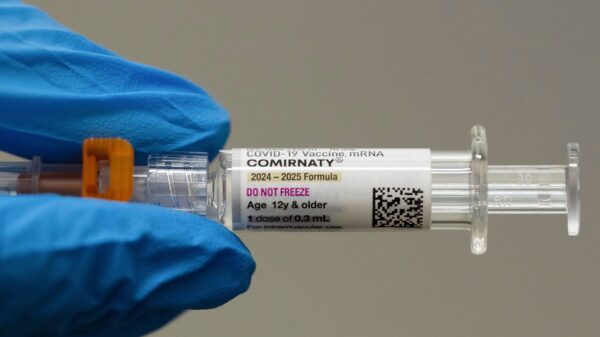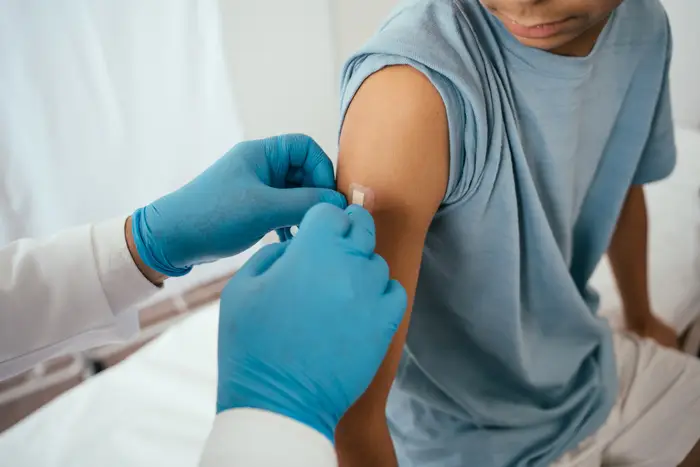New York lawmakers are taking decisive action to ensure continued access to vaccines as concerns mount over potential shifts in federal immunization guidelines. In response to growing public health apprehensions, Assembly Health Committee Chair Amy Paulin has introduced a bill aimed at expanding vaccine administration practices within the state.
The proposed legislation allows pharmacies and healthcare providers to administer vaccines based on state and regional recommendations, alongside federal guidelines. It also mandates that health insurance plans cover vaccines recommended by these state authorities. Paulin emphasized the importance of ensuring that all individuals have access to vaccinations. “We just have to be sure that everyone has access [to vaccines] and everyone has coverage,” she stated.
State Senator Michelle Hinchey has introduced a similar bill in the Senate, reinforcing the legislative push. The new measures would empower New York doctors and pharmacists to order and administer vaccines based not only on federal recommendations from the Advisory Committee on Immunization Practices (ACIP) but also on advice from the Immunization Advisory Council and the 21st Century Workgroup for Disease Elimination and Reduction. Furthermore, guidance from the newly established Northeast Public Health Collaborative would also be applicable.
The legislation aims to amend state insurance laws, making it obligatory for health plans to cover all vaccines recommended by these state entities, rather than limiting coverage to those endorsed solely by ACIP. Other pending bills, introduced by Senator Brad Hoylman-Sigal and Assemblymember Micah Lasher, also seek to clarify vaccine guidelines in light of federal uncertainties. These initiatives would permit pharmacists to administer vaccines as long as they are recommended by the state health commissioner.
Lawmakers are expected to reconvene in Albany in January, where they will prioritize these vaccine guidelines. Historically, New York law has deferred to ACIP for vaccine standards. However, recent changes to the committee have raised concerns. Under the leadership of Health and Human Services Secretary Robert F. Kennedy Jr., the committee now includes members critical of vaccines. During public meetings, the committee voted to restrict access to the combined measles, mumps, rubella, and varicella vaccine and mandated discussions between patients and clinicians regarding the risks and benefits of COVID-19 vaccinations.
Public health experts, including former officials from the Centers for Disease Control and Prevention (CDC), have expressed alarm over the direction of federal vaccine recommendations. Demetre Daskalakis, who recently resigned as director of the National Center for Immunization and Respiratory Diseases, noted that “science [has been] sidelined” and that unproven theories are being presented as credible within the ACIP framework.
In light of these developments, David Jakubowicz, president of the Medical Society of the State of New York, voiced support for state legislation that prioritizes regional guidance until trust in federal recommendations can be restored. “Given the upheaval… it’s caused a fair amount of distrust,” he remarked, stressing the necessity of ensuring that vaccines remain accessible and covered by insurance.
To address confusion within the medical community, Governor Kathy Hochul has taken steps to facilitate access to the latest COVID-19 vaccines. Following a delay in ACIP guidance, the U.S. Food and Drug Administration advised that the shots be administered primarily to individuals over the age of 65 and those with certain health conditions. In response, an executive order issued by Hochul on September 5, 2023, allows pharmacies to broadly distribute COVID-19 vaccines. However, this order requires monthly renewal and does not extend to other vaccines that might face future restrictions or create an insurance mandate.
Governor Hochul has indicated her intention to renew the September 5 executive order until the state Legislature can take further action. As legislative discussions on vaccine access continue, the focus remains on ensuring that New Yorkers can receive the vaccinations they need while navigating the complexities of changing federal guidelines.





































































